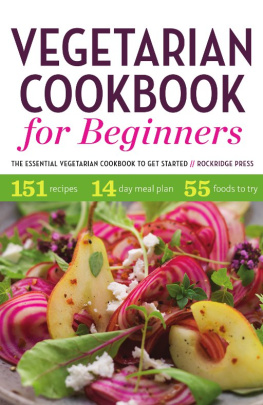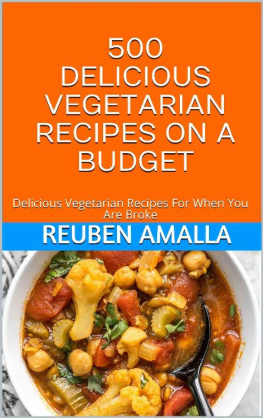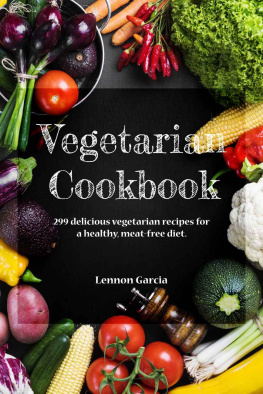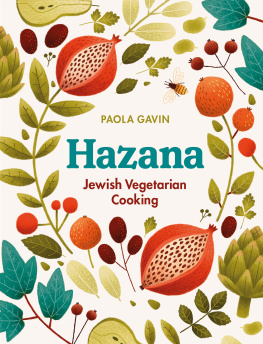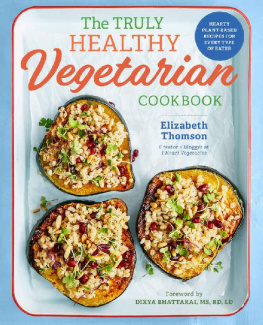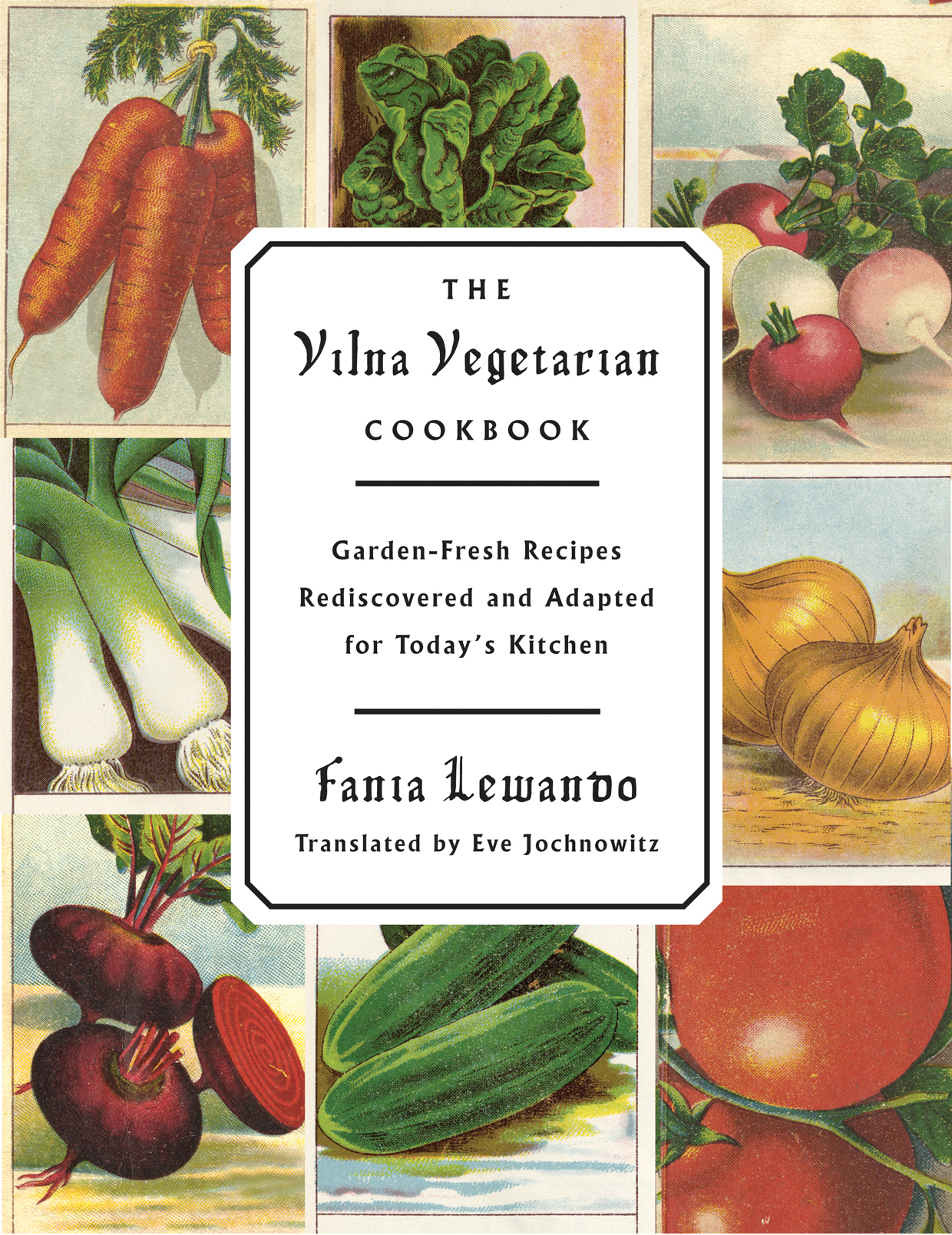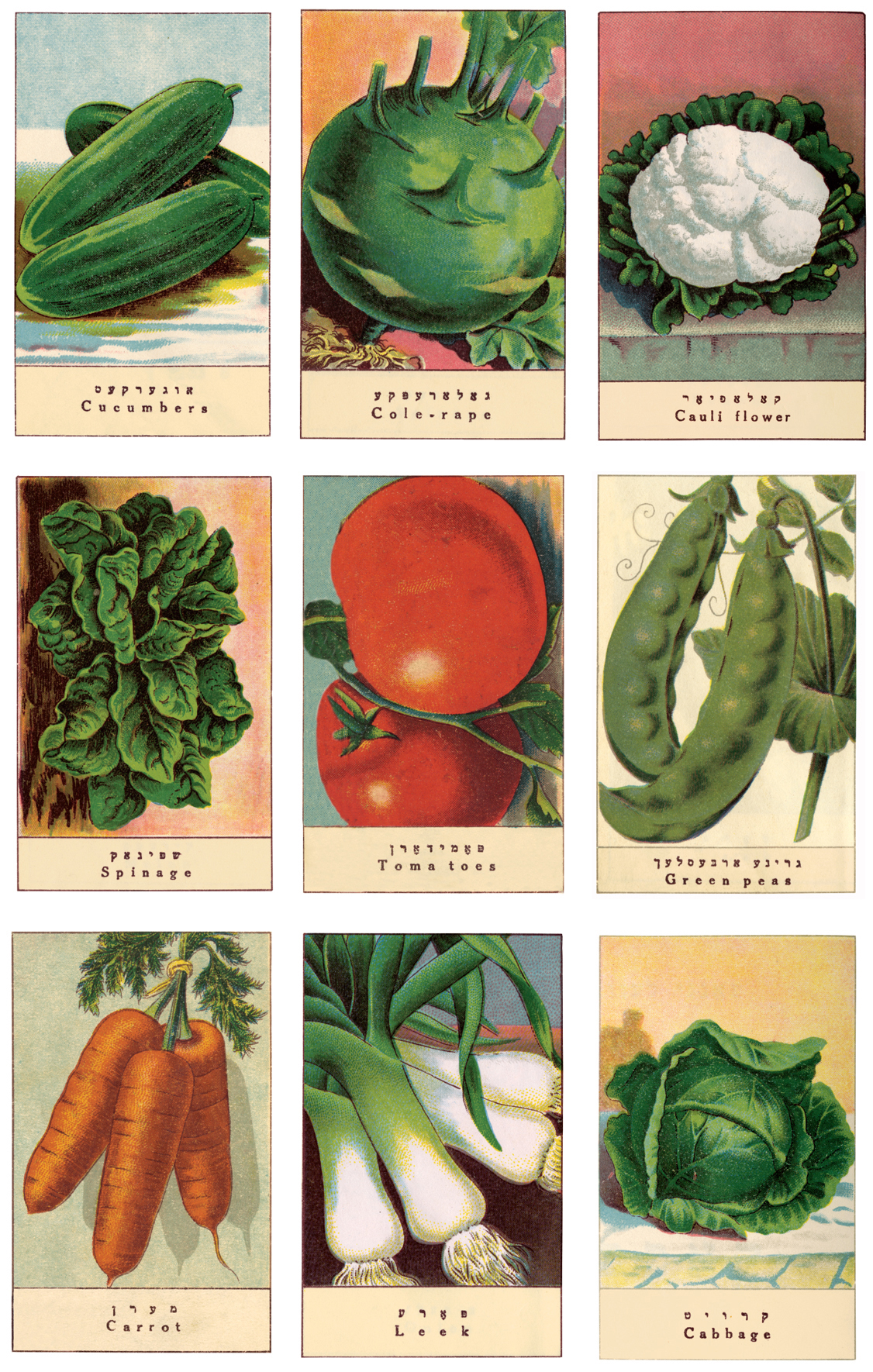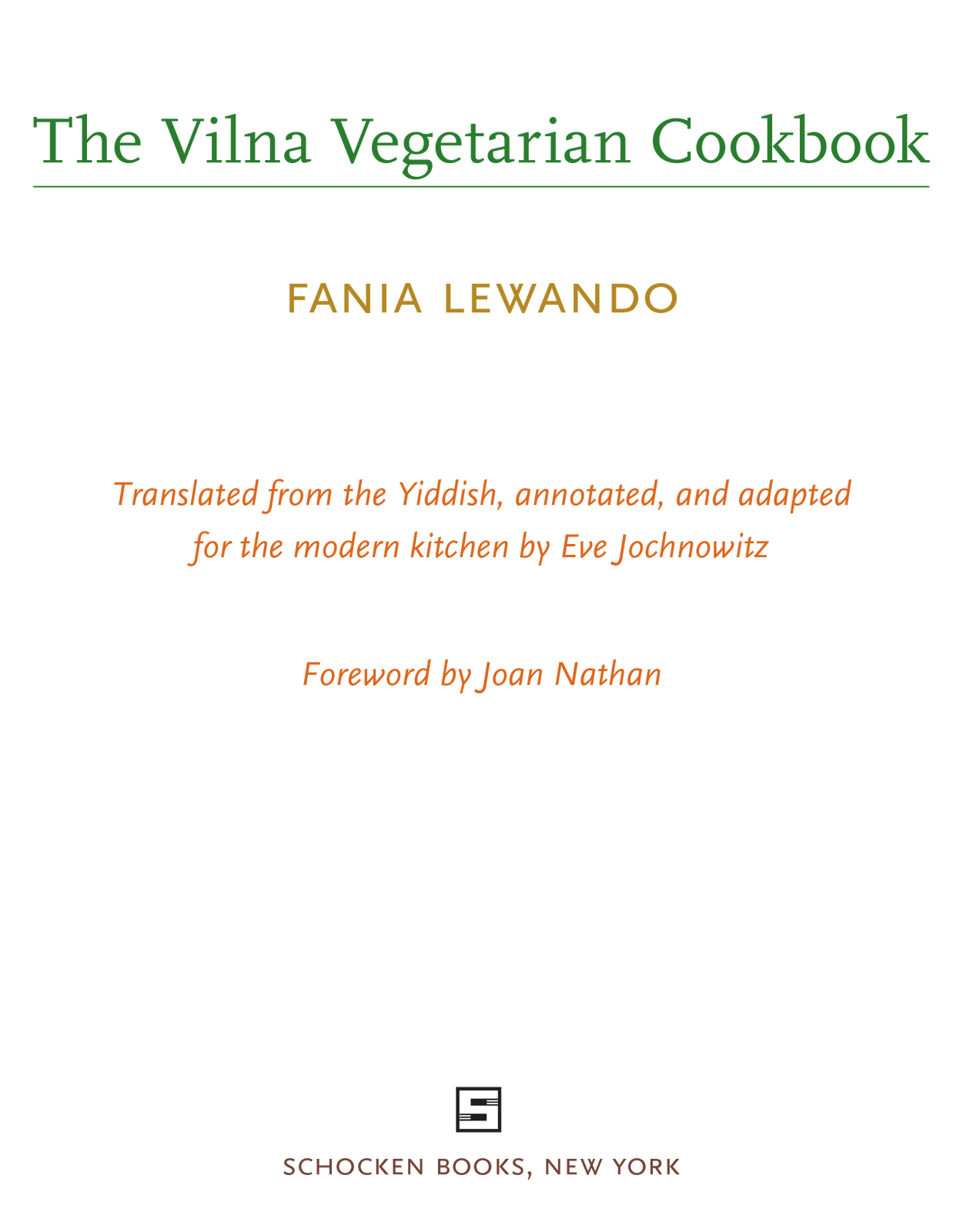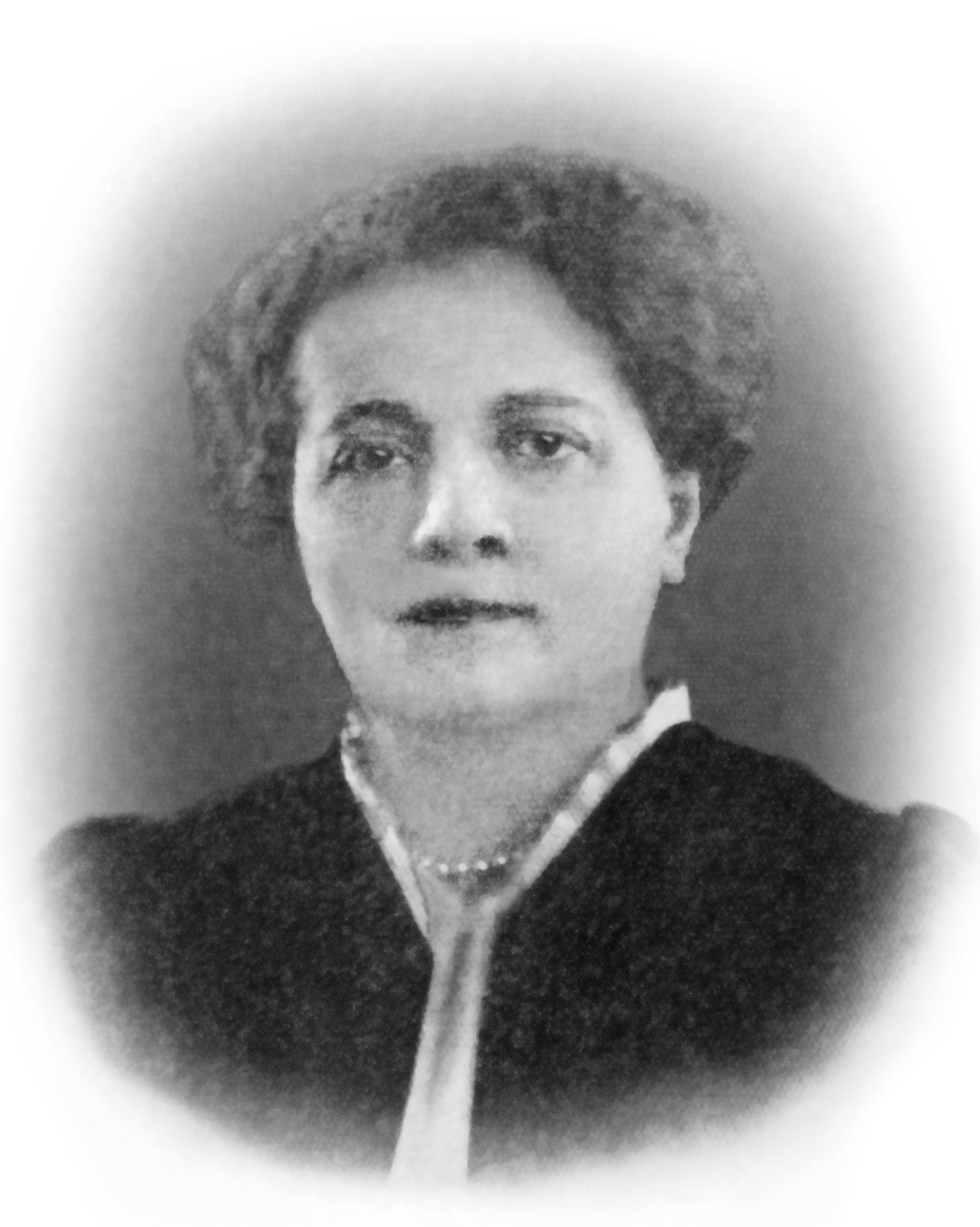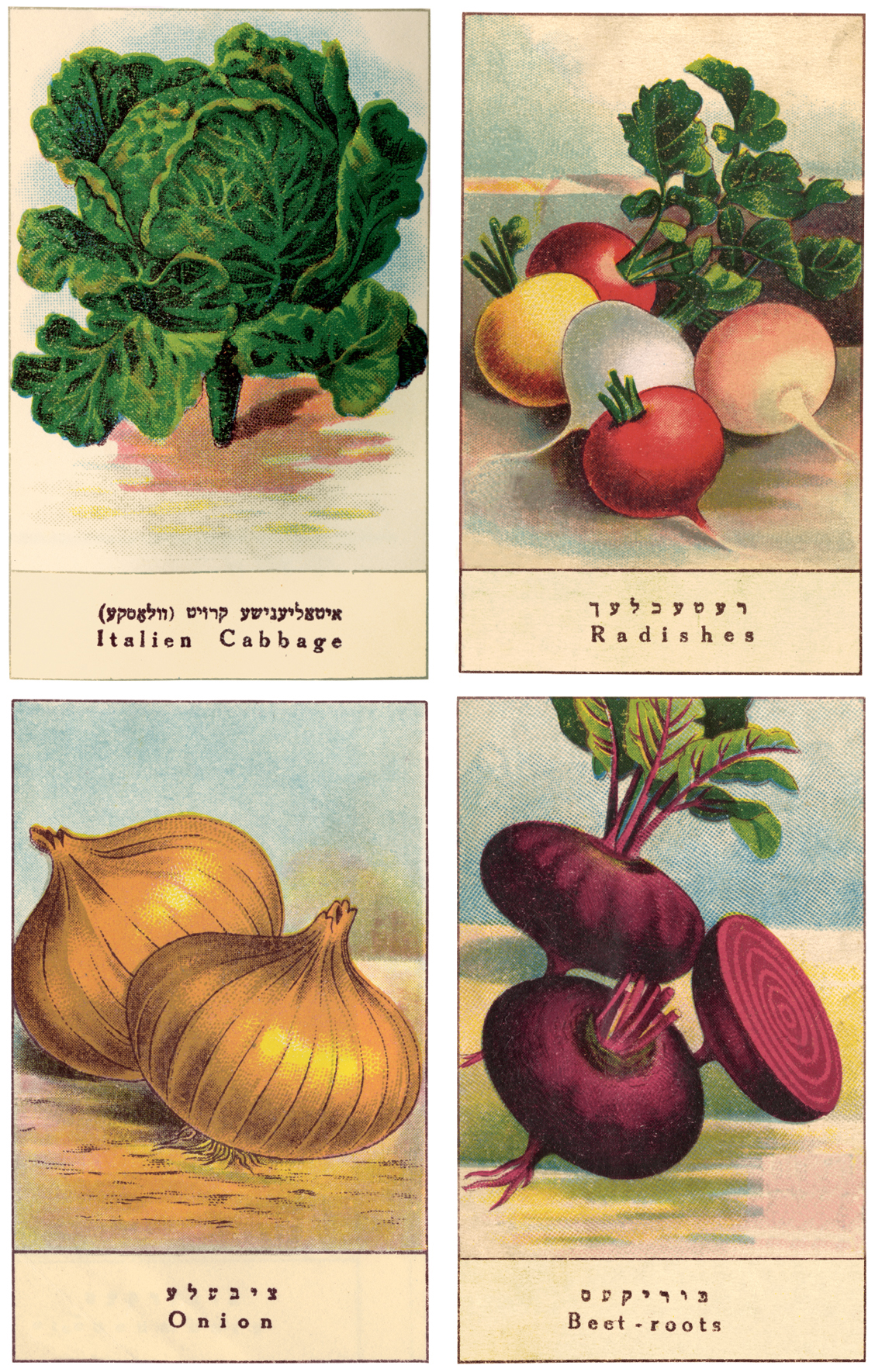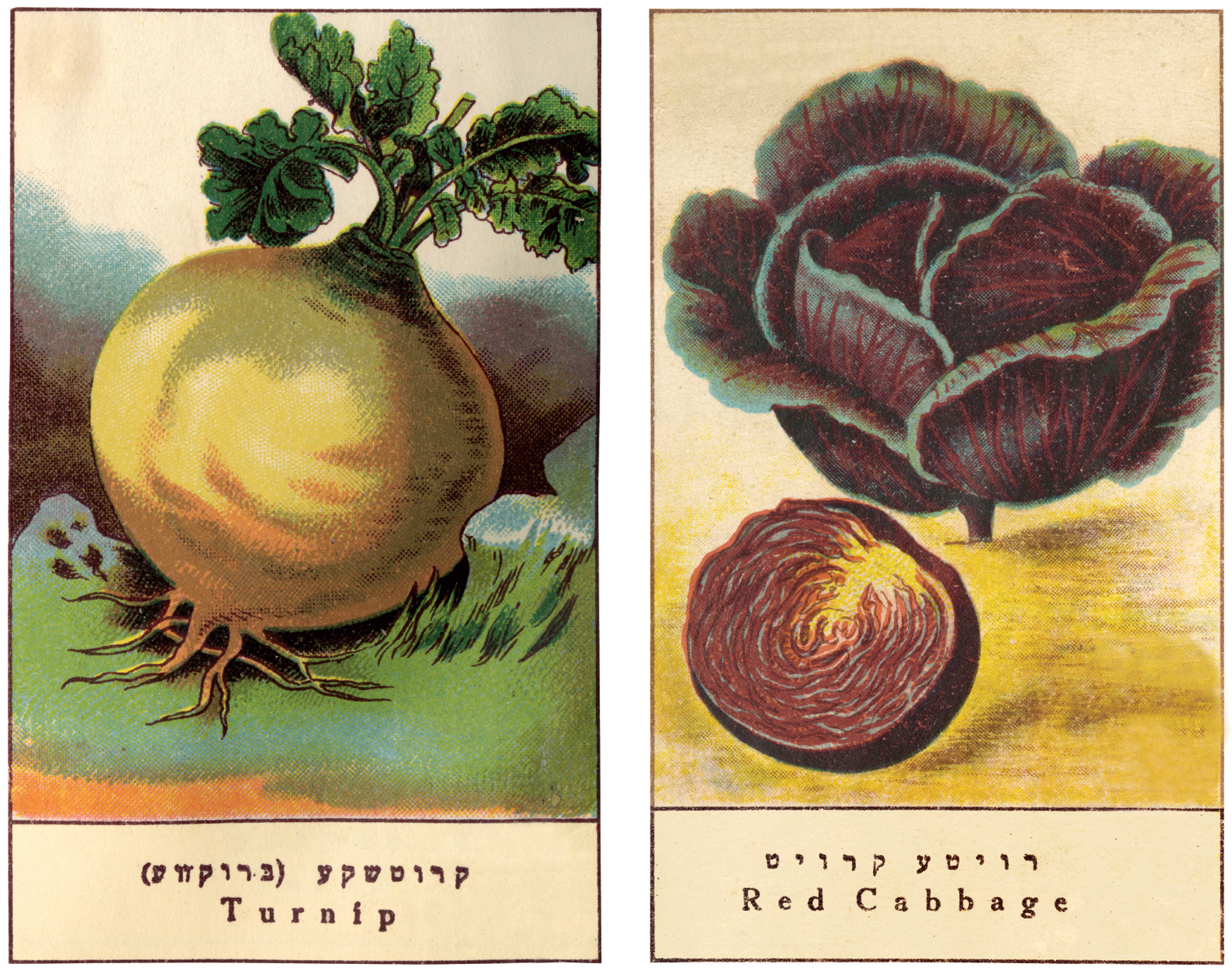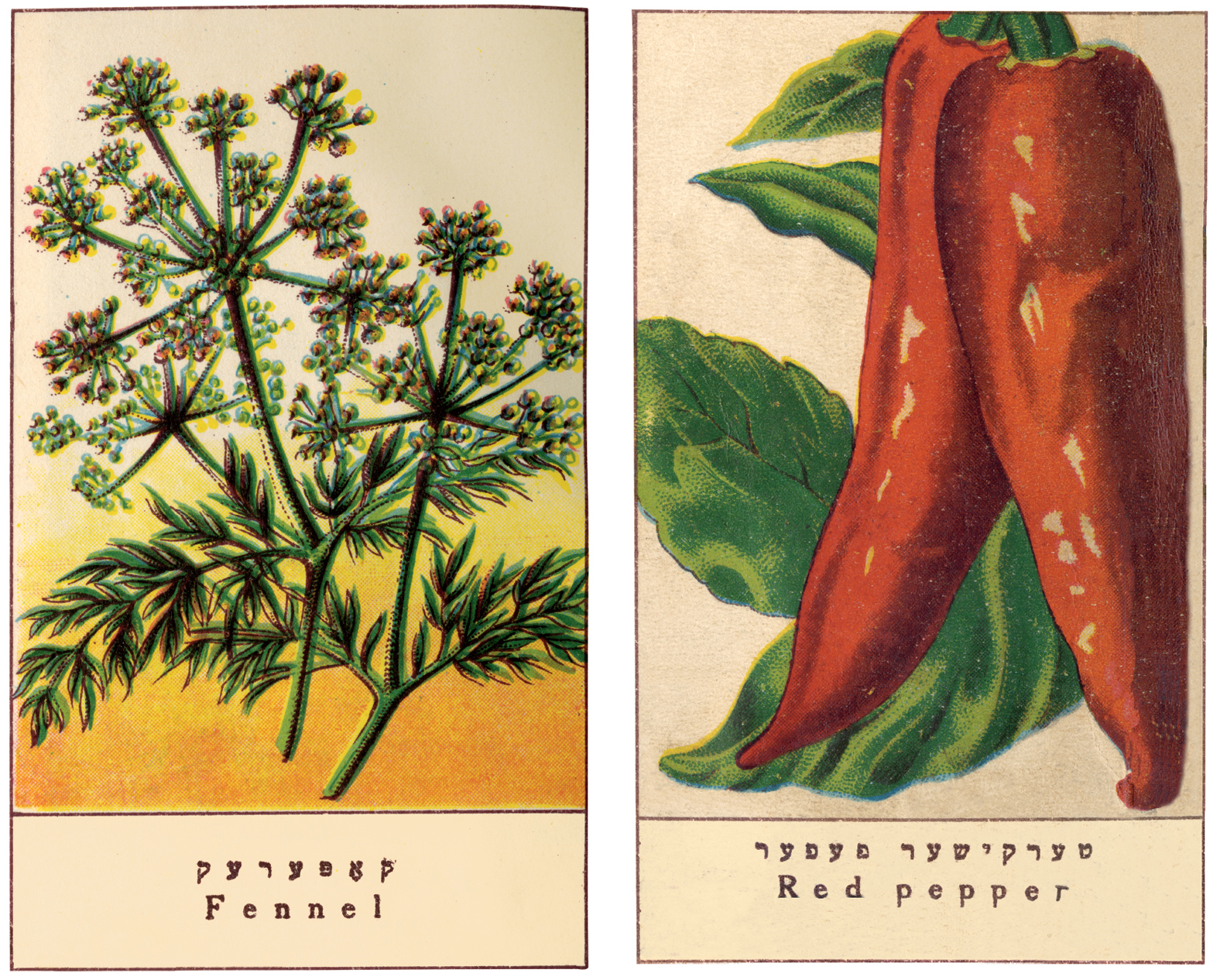Jochnowitz Eve - The Vilna Vegetarian Cookbook: garden-fresh recipes rediscovered and adapted for todays kitchen
Here you can read online Jochnowitz Eve - The Vilna Vegetarian Cookbook: garden-fresh recipes rediscovered and adapted for todays kitchen full text of the book (entire story) in english for free. Download pdf and epub, get meaning, cover and reviews about this ebook. City: New York, year: 2015, publisher: Knopf Doubleday Publishing Group;Schocken Books, genre: Home and family. Description of the work, (preface) as well as reviews are available. Best literature library LitArk.com created for fans of good reading and offers a wide selection of genres:
Romance novel
Science fiction
Adventure
Detective
Science
History
Home and family
Prose
Art
Politics
Computer
Non-fiction
Religion
Business
Children
Humor
Choose a favorite category and find really read worthwhile books. Enjoy immersion in the world of imagination, feel the emotions of the characters or learn something new for yourself, make an fascinating discovery.

- Book:The Vilna Vegetarian Cookbook: garden-fresh recipes rediscovered and adapted for todays kitchen
- Author:
- Publisher:Knopf Doubleday Publishing Group;Schocken Books
- Genre:
- Year:2015
- City:New York
- Rating:3 / 5
- Favourites:Add to favourites
- Your mark:
The Vilna Vegetarian Cookbook: garden-fresh recipes rediscovered and adapted for todays kitchen: summary, description and annotation
We offer to read an annotation, description, summary or preface (depends on what the author of the book "The Vilna Vegetarian Cookbook: garden-fresh recipes rediscovered and adapted for todays kitchen" wrote himself). If you haven't found the necessary information about the book — write in the comments, we will try to find it.
In 1938, Fania Lewando, the proprietor of a popular vegetarian restaurant in Vilna, Lithuania, published a Yiddish vegetarian cookbook unlike any that had come before. Its 400 recipes ranged from traditional Jewish dishes (kugel, blintzes, fruit compote, borscht) to vegetarian versions of Jewish holiday staples (cholent, kishke, schnitzel) to appetizers, soups, main courses, and desserts that introduced vegetables and fruits that had not traditionally been part of the repertoire of the Jewish homemaker (Chickpea Cutlets, Jerusalem Artichoke Soup; Leek Frittata; Apple Charlotte with Whole Wheat Breadcrumbs). Also included were impassioned essays by Lewando and by a physician about the benefits of...
Jochnowitz Eve: author's other books
Who wrote The Vilna Vegetarian Cookbook: garden-fresh recipes rediscovered and adapted for todays kitchen? Find out the surname, the name of the author of the book and a list of all author's works by series.

